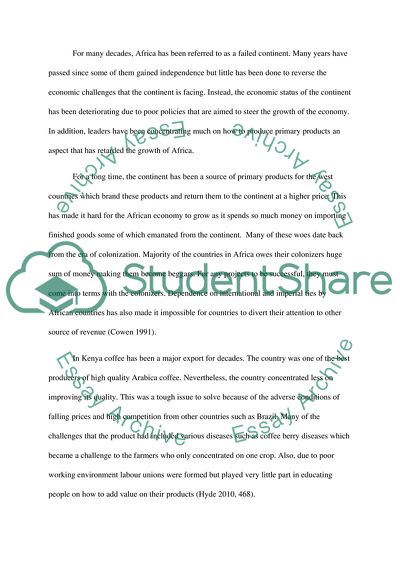Cite this document
(Effects of Specialisation in Primary Products for Export to Africa Essay, n.d.)
Effects of Specialisation in Primary Products for Export to Africa Essay. https://studentshare.org/macro-microeconomics/1778247-9african-economies-were-retarded-by-their-specialisation-in-primary-products-for-export-discuss
Effects of Specialisation in Primary Products for Export to Africa Essay. https://studentshare.org/macro-microeconomics/1778247-9african-economies-were-retarded-by-their-specialisation-in-primary-products-for-export-discuss
(Effects of Specialisation in Primary Products for Export to Africa Essay)
Effects of Specialisation in Primary Products for Export to Africa Essay. https://studentshare.org/macro-microeconomics/1778247-9african-economies-were-retarded-by-their-specialisation-in-primary-products-for-export-discuss.
Effects of Specialisation in Primary Products for Export to Africa Essay. https://studentshare.org/macro-microeconomics/1778247-9african-economies-were-retarded-by-their-specialisation-in-primary-products-for-export-discuss.
“Effects of Specialisation in Primary Products for Export to Africa Essay”. https://studentshare.org/macro-microeconomics/1778247-9african-economies-were-retarded-by-their-specialisation-in-primary-products-for-export-discuss.


